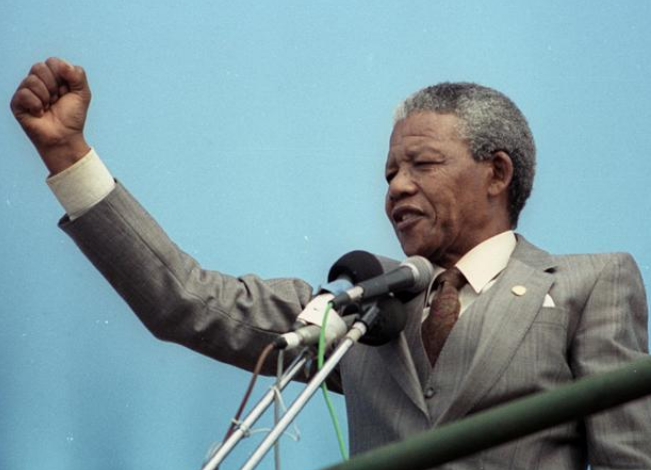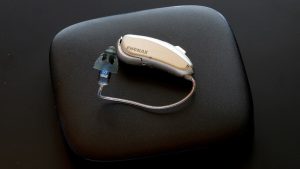As part of celebrating Mandela Month, the Nelson Mandela Foundation announced that this year’s Nelson Mandela Annual Lecture will be delivered by the United Nations (UN) Secretary-General, António Guterres on the 18th of July 2020.
The appropriateness of the choice of the guest speaker is also a stark reminder of the time Mandela consumed at platforms of the multilateral body in pursuit of South Africa’s foreign policy.
Speaking as president of the African National Congress (ANC) at the UN in 1993 about his country’s desired foreign policy, Mandela said, “South Africa’s future foreign relations will be based on our belief that human rights should be the core concern of international relations, and we are ready to play a role in fostering peace and prosperity in the world we share with the community of nations”.
As head of state, Mandela seamlessly and effortlessly adapted both soft and hard power diplomacies to achieve this foreign policy objective. Under Mandela, South Africa’s diplomats in 1995 facilitated key agreements among well-known nuclear powers and the developing world for the Treaty on the Non-Proliferation of Nuclear Weapons (NPT).
Therefore, other areas in its foreign policy for which South Africa was applauded included the non-proliferation and disarmament of weapons of mass destruction and conventional weapons, including landmines. The government viewed this as an extension of its commitment to social justice, human rights and democracy.
SA’s reconstruction
In the UN, Mandela found an appropriate platform to further his vision. It must also be noted that Mandela put up a fight at the UN in 1995, albeit one which he lost, arguing that the South African government was not liable for an apartheid government’s debt of US$ 2.65 billion at the time.
Speaking as a debutant state president at the General Assembly, Mandela appealed to all UN members to continue their interest in his country although this time it would be to better the conditions of the lives of South Africans – black and white.
Following this appeal, the UN, subsequent to the General Assembly resolution 48/258, encouraged its members to assist South Africa’s reconstruction and socio-economic plans. At the 1995 United Nations Women’s Conference in Beijing, South Africa, under the stewardship of Mandela and his quest to protect human rights for all, came out strongly against discrimination on the basis of sexual orientation.
This stance did not go down well with some fellow African delegates who opposed South Africa for raising the topic of sexual orientation. South Africa downed the opposition off explaining that its constitution barred discrimination on sexual orientation grounds.
Firm diplomatic tactics
Whereas he was a firm beliver in negotiations and pursuation as forms of diplomacy, or soft power, history records that Mandela did not shy away from applying strong-arm diplomatic tactics when a situation demanded.
Nigeria’s military ruler, General Sani Abacha was among the first recipients of Madiba’s “other” diplomatic side. Following the execution of Ogoniland activist Ken Saro Wiwa by the military junta, Madiba led the charge which resulted in the suspension of Nigeria from the Commonwealth, and even demanded diplomatic isolation plus economic sanctions against the oil-rich nation.
As an example, Mandela withdrew South Africa’s High Commissioner from Nigeria. Contestant Toyin Enitan Raji was also forced to withdraw from the Miss World peagant held at Sun City, South Africa, hours after being awarded the Miss Personality title of the contest.
This followed pressure applied by track two diplomacy activists in South Africa. This fallout between South Africa and Nigeria also played out in the Soccer Diplomacy field.
That Bafana Bafana won the 1996 Afcon is a celebrated milestone in South African soccer history. However, for Nigeria and the Super Eagles soccer squad fans, Neil Tovey lifted the cup because the defending champions opted to snub the competition. Nigeria’s absence from the 1996 Africa Cup of Nations was effectively because of Madiba’s diplomacy.
Abacha claimed to be concerned about his players’ safety, while in diplomatic circles it was interpreted as a reaction to Mandela’s campaign to get Nigeria isolated for executing Saro-Wiwa and eight other dissidents.
Economic diplomacy
Whereas Mandela’s foreign policy may have concentrated on mending relations and establishing new ones with the international community, under Madiba, South Africa quickly directed its international engagements towards a solid economic diplomacy component.
Its intentions were to increase investment and trade, including information technology cooperation. There also was a notable output of economic and financial resources towards African governments and programs. To illustrate this, South Africa signed the Abuja Treaty in 1997 thereby committing itself to the policy of strengthening African integration through regional economic communities (RECs).
While Zimbabwe and Angola had committed troops in the Democratic Republic of Congo (DRC) in 1998, Mandela, as chairman of the Southern African Development Community (SADC), opted for regional summits to discuss a peaceful resolution of the conflict in the country. He had after all facilitated the negotiations between Mobutu Sese Seko and Laurent Kabila.
However, Mandela’s opposition to military intervention was later reversed and he offered his support to Angola and Zimbabwe. During the conflict in the DRC, South Africa was in the midst of formulating its foreign policy on its involvement in international peace missions.
Towards the end of 1998, the guiding document in this regard was the White Paper on South African Participation in Peace Missions. The White Paper was succinct on the subject as it declared that “South Africa will therefore support the United Nations and, where relevant, the Organisation of African Unity and the Southern African Development Community by making an appropriate contribution to international peace missions”.
Backed by legislation on its side, South Africa pulled all stops to ensure peace in the DRC. Mandela had always argued that South Africa opts for hard power in order to protect human rights. In those instances, Mandela would nevertheless still seek consensus for such actions.
“To supply arms to Rwanda was influenced by humanitarian consideration that people who are unarmed are going to be victims of that army which is operating outside the borders”, said Mandela, adding with emphasis that “but that decision was taken in consultation with the leaders in that region”.
Intervention in other countries
Meanwhile in September 1998, Madiba maintained that South Africa’s armed forces, accompanied by Botswana Defence Force soldiers, intervened in Lesotho “to ensure that there is peace and stability, so that the Basotho themselves can now sit down and explore a political solution”.
Arguing for a negotiated political settlement, Mandela said “our belief is that issues of this nature can’t be settled through military intervention”. This, after South Africa had initially arbitrated diplomatically, setting up a commission made up of regional legal specialists led by South African Justice Pius Langa, to assess Lesotho’s opposition parties claims that the ruling Lesotho Congress of Democrats had rigged elections.
According to Mandela, South Africa believed in “peaceful solutions”, however added that, “whether we’re going to continue with that policy indefinitely must depend on the reality on the ground”. He conceded that force was used, but only after peaceful interventions failed.
This was despite SADC ‘not having a working procedure to handle a crisis situation of this nature’. The aforementioned demonstrate the paradoxical nature of Mandela’s international relations.
Nevertheless, the events reveal that Mandela’s foreign policy adapted the use of hard power tactical interventions in order to create conducive conditions for soft power diplomacy.
By CEO of Institute of Foreign Affairs – Mpho Tsedu






